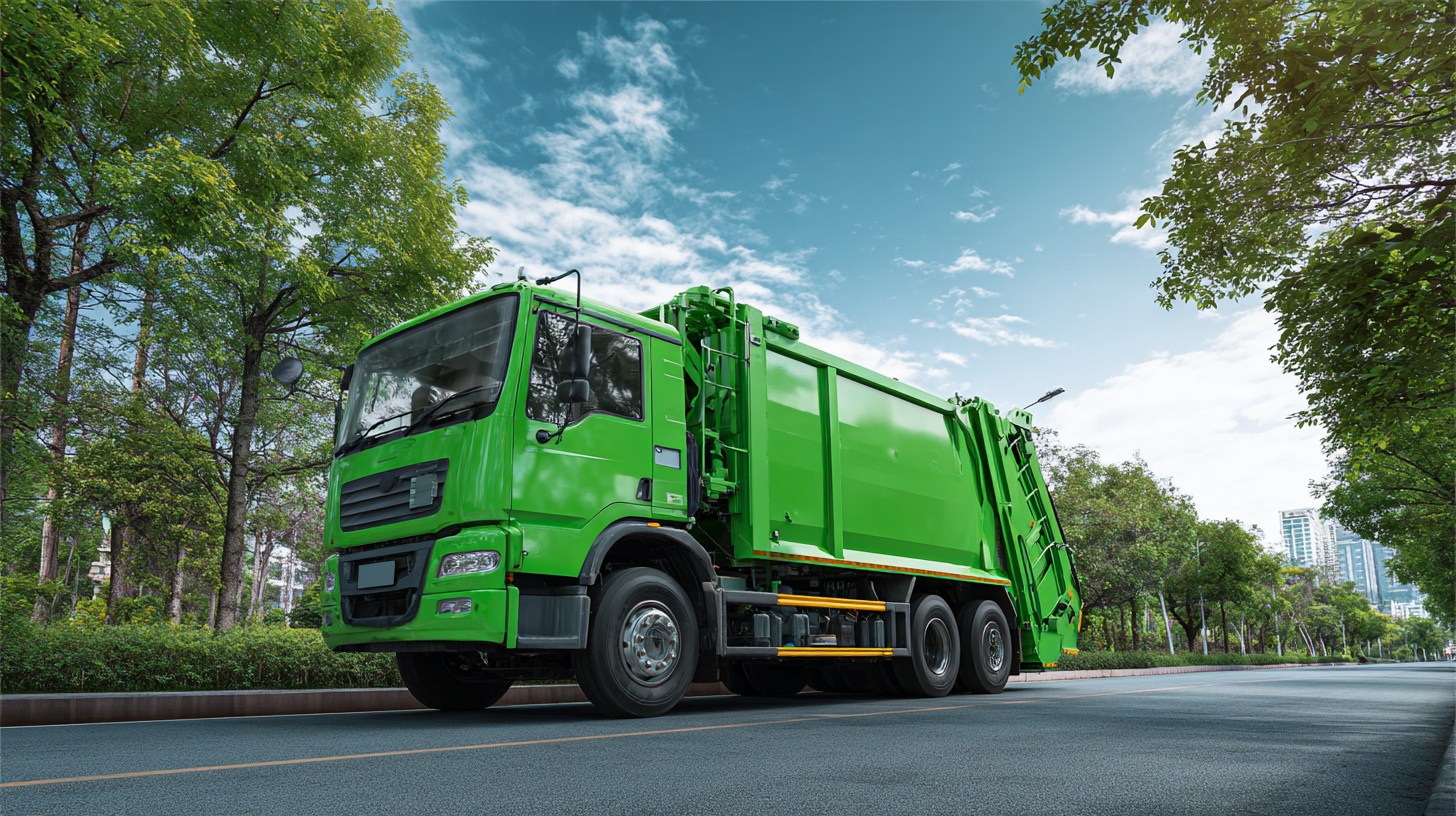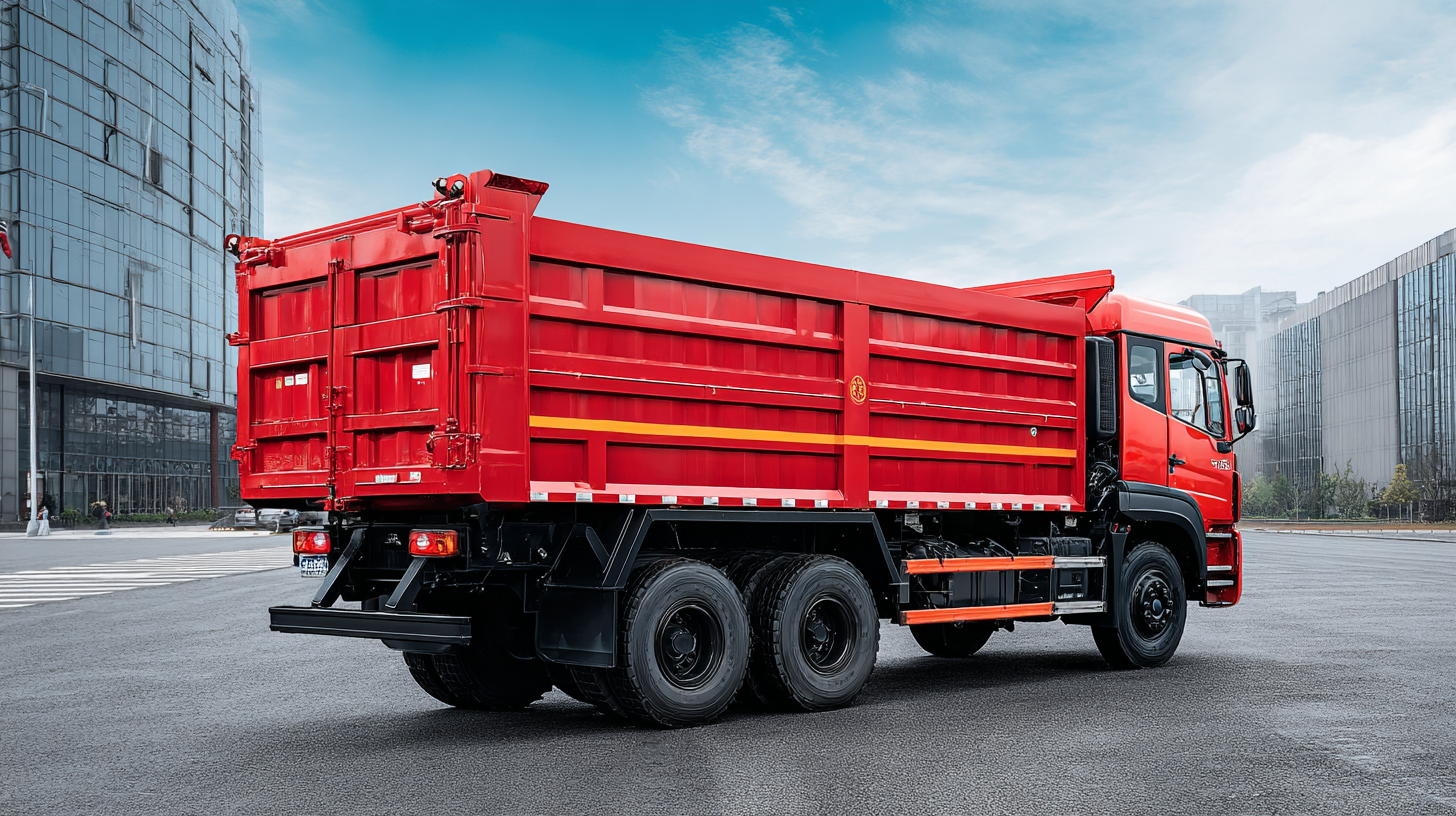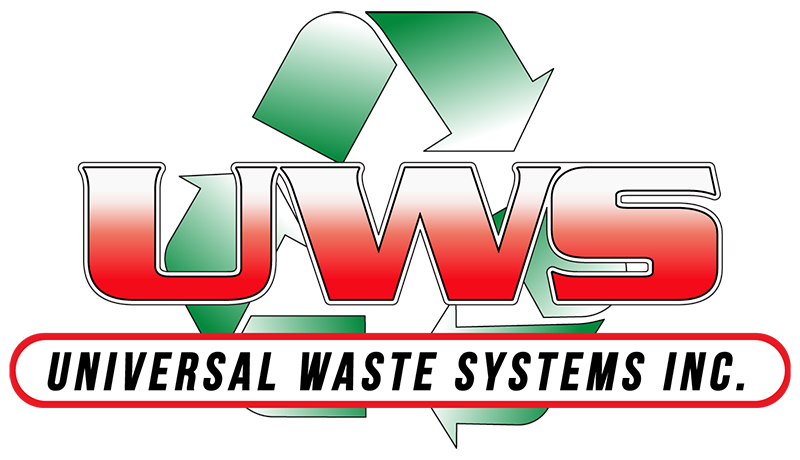Blog
Unveiling the Technical Specifications of the Best Waste Pickup Solutions for Your Business
In today's fast-paced business environment, efficient Waste Pickup solutions have become paramount for maintaining operational sustainability and compliance with environmental regulations. According to the Environmental Protection Agency (EPA), the United States alone generated over 292.4 million tons of trash in 2018, reflecting a need for effective waste management strategies that not only optimize waste collection processes but also reduce organizational carbon footprints. As businesses increasingly pivot towards greener practices, the demand for advanced Waste Pickup technologies has surged, leading to innovations in waste sorting systems and collection logistics. This blog delves into the technical specifications of the best Waste Pickup solutions available in the market, highlighting their effectiveness in improving overall efficiency and sustainability for businesses across various industries.

Understanding the Importance of Efficient Waste Pickup Solutions in Modern Businesses
Efficient waste pickup solutions have become a crucial aspect of modern businesses, significantly impacting both environmental sustainability and operational cost management. According to a report by the World Economic Forum, efficient waste management practices can lead to cost savings of up to 30% for companies, highlighting the financial incentives of optimizing waste pickup. Moreover, with the global waste generation projected to reach 3.4 billion tons by 2050, businesses must prioritize effective waste solutions not just for regulatory compliance, but for corporate social responsibility as well.
Implementing efficient waste management systems can enhance a company's reputation among consumers increasingly concerned with sustainability. A study by McKinsey reveals that around 70% of consumers are willing to pay more for products from environmentally responsible companies. Thus, by investing in state-of-the-art waste pickup solutions, businesses not only streamline their operations but also align with consumer preferences, driving brand loyalty. In this evolving landscape, understanding the technical specifications of waste pickup solutions—such as truck capacity, sorting technology, and data tracking capabilities—becomes essential for businesses aspiring to lead in sustainability while also reaping economic benefits.
Unveiling the Technical Specifications of the Best Waste Pickup Solutions for Your Business
| Solution Type | Capacity (Liters) | Pickup Frequency (Days) | Technology Used | Environmental Compliance | Cost per Pickup ($) |
|---|---|---|---|---|---|
| Standard Bin Pickup | 120 | 7 | Manual Collection | Yes | 50 |
| Compactor Service | 500 | 14 | Automated Compression | Yes | 100 |
| Recycling Service | 240 | 7 | Dual Stream Sorting | Yes | 65 |
| Organic Waste Collection | 150 | 3 | Biodegradable Tracking | Yes | 40 |
| Hazardous Material Pickup | 100 | 30 | Safety Protocols | Yes | 150 |
Key Technical Features of Top Waste Management Systems for Optimal Performance
In the current landscape of waste management, selecting the right waste pickup solutions hinges on understanding the key technical features that enhance operational efficiency and sustainability. Recent studies indicate that effective waste management systems significantly contribute to recycling rates, with landfill taxes serving as a common economic instrument used across the EU to curb municipal waste. Notably, 22 EU Member States have adopted these measures, providing a strong incentive for businesses to engage in more effective waste management practices.
Furthermore, the integration of IoT-enabled systems into waste management is gaining momentum. These smart technologies promote real-time monitoring and optimization of garbage collection routes, addressing the complexities of metropolitan waste production. Research shows that utilizing meta-heuristic approaches for route optimization can lead to a considerable reduction in operational costs and environmental impact, enhancing overall performance. Businesses adopting these innovative solutions not only align with sustainability assessments but also improve their operational efficacy, contributing to a circular economy while fulfilling regulatory compliance.

Evaluating the Cost-Effectiveness of Advanced Waste Pickup Technologies
When considering waste pickup solutions for your business, evaluating the
cost-effectiveness
of advanced technologies is crucial. As organizations seek to streamline operations and reduce overhead costs, investing in
innovative waste management systems can yield
significant long-term savings.
For instance, automated waste collection vehicles equipped with GPS tracking systems can optimize routes, cut down on
fuel expenses, and minimize labor costs.
Furthermore, smart waste bins that utilize IoT technology allow businesses to monitor
fill levels in real-time, ensuring efficient collection schedules and reducing unnecessary pickups. This smart
approach not only enhances waste management efficiency but also lowers operational costs. By reducing the
frequency of collections and improving recycling efforts, companies can positively impact their bottom line while promoting
sustainability, an increasingly
important concern for consumers today.
Moreover, the initial investment in these advanced technologies can be offset by various fiscal incentives, including
grants for sustainable practices and tax deductions. Organizations must conduct a thorough cost-benefit analysis to fully understand
the potential return on investment, making informed choices that align with their waste management goals
and overall financial strategies.
Comparative Analysis of Waste Pickup Capacity: Traditional vs. Innovative Solutions
When it comes to waste management, businesses face a critical decision between traditional waste pickup solutions and innovative approaches. Traditional waste collection methods often utilize standard-sized bins and routine pickup schedules, which can lead to inefficiencies, especially for companies experiencing fluctuating waste volumes. This rigidity often results in either overflows or wasted service capacity, where businesses pay for unused space in their bins.

In contrast, innovative waste pickup solutions leverage advanced technologies, such as smart sensors and data analytics, to optimize collection frequency and capacity. These systems can adjust to real-time waste generation patterns, ensuring that bins are collected only when full and enabling a more sustainable approach to waste management. Moreover, these innovations often incorporate eco-friendly practices, reducing overall carbon footprints while enhancing operational efficiency. As businesses increasingly prioritize sustainability, understanding the comparative waste pickup capacity of traditional versus innovative solutions becomes essential for choosing the right strategy for effective waste management.
Integrating Smart Technology into Waste Management: Benefits and Usability
In today's fast-paced business environment, waste management is evolving rapidly, with smart technology leading the transformation. Integrating IoT devices into waste pickup solutions enhances the efficiency of waste collection processes. Sensors embedded in waste bins can monitor fill levels in real-time, allowing businesses to optimize pickup routes and schedules. This not only reduces operational costs but also minimizes the carbon footprint, as waste collection vehicles can operate on a more strategic, data-driven approach.
Moreover, smart waste management solutions offer businesses valuable insights through analytics. By collecting data on waste generation patterns, companies can identify areas for improvement and implement recycling initiatives. This proactive approach fosters a culture of sustainability within the organization, engaging employees in responsible waste disposal practices. The usability of these systems is further enhanced by user-friendly interfaces and mobile applications that provide instant access to waste management metrics and notifications, ensuring that businesses remain informed and agile in their sustainability efforts. By embracing smart technology, companies can effectively manage waste while reinforcing their commitment to environmental responsibility.
Waste Pickup Solutions: Efficiency and Smart Technology Integration
Request a Quote
Fill out the form below and one of our specialists will contact you to discuss your questions and needs.
